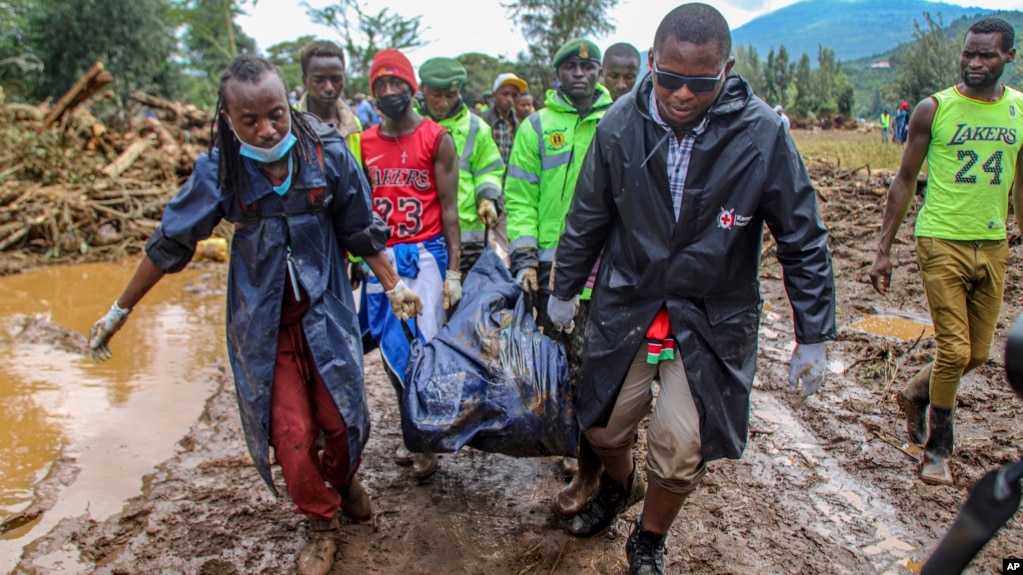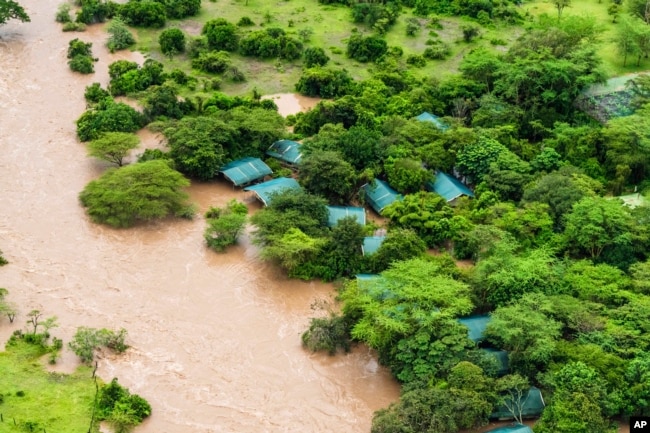AUDIO
Scientists: Climate Change, Growth Worsen Effects of East African Rains

An international team of climate scientists recently released a report on climate change and city growth. They found the effects of heavy rains that struck East Africa in recent months were worsened by climate change and fast development in cities.
The report was produced by World Weather Attribution (WWA). The nonprofit scientific group studies the links between human-caused climate change and extreme weather events.
Heavy rains from March to May caused major flooding across East Africa that killed hundreds of people. The damage also displaced thousands of others, killed thousands of farm animals and destroyed hundreds of hectares of crops.
The researchers used weather data and computer modeling to compare how the severe weather events happening today have changed since pre-industrial times. Specifically, they looked at how human-caused climate change may have affected the floods.
They examined areas where the effects were most severe, including Kenya, most of Tanzania and parts of Burundi.
The report found that climate change had made the harmful rains twice as likely and 5 percent more intense. The study predicted that with further warming in the future, heavy rains would continue happening more often and become stronger.
Joyce Kimutai is a researcher at Imperial College London and was lead writer of the study. She said, “We’re likely to see this kind of intensive rainfall happening this season going into the future.”
The study also found that the quick growth of East African cities is increasing the risk of flooding.

Highly populated areas were greatly affected by the intense rains, also called downpours. The rains flooded numerous houses and city roads. In some places, the downpours showed weaknesses in city planning to meet the demands of fast-growing populations.
March to May is known in East Africa as the “long rains” season. This is when most of the area’s average yearly rainfall takes place. And often, the rains are very heavy.
In 2023, East Africa also suffered widespread flooding after a period of “short rains” from October to December. And before that, the area experienced a three-year drought. WWA scientists found that both events were worsened by climate change.
Philip Omondi is a climate change specialist at the Climate Prediction and Applications Centre in Nairobi, Kenya. He was not involved in the study. He said human-caused climate change results in intense, repeated flooding and droughts.
Shaun Ferris is senior technical advisor for agriculture and climate change at Catholic Relief Services in Nairobi. He said more intense weather can put a new level of pressure on old and unplanned buildings and infrastructure. Ferris called for putting up infrastructure that can survive the effects of climate change.
“There is huge pressure on basic services,” he said. As an example, he named Kenya’s capital Nairobi, where the population has doubled over the past 20 years.
Ferris said the world community needs to start using the United Nations’ supported loss and damage fund for climate disasters. The fund was created during the U.N. Climate Conference in 2022 to aid countries most affected by climate change.
Ferris suggested that countries could start using money from the fund now to repair and improve basic infrastructure systems.
______________________________________________
Words in This Story
intense – adj. very great in degree: very strong
drought – n. a long period of time during which there is very little or no rain
infrastructure – n. the basic equipment and structures (such as roads and bridges) that are needed for a country, region, or organization to function properly
fund – n. an amount of money that is used for a special purpose
https://learningenglish.voanews.com/a/scientists-climate-change-growth-worsen-effects-of-east-african-rains/7629869.html